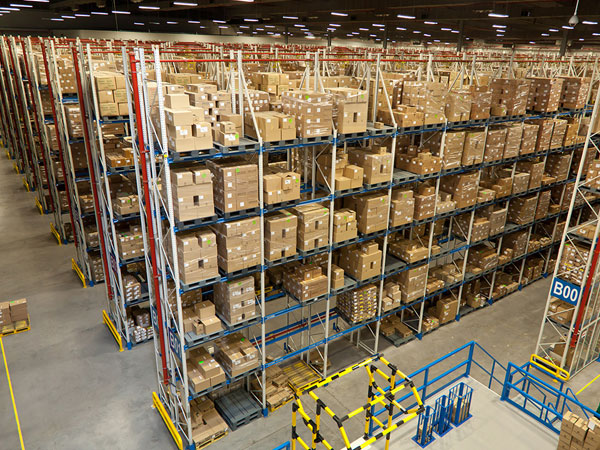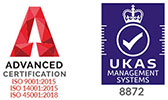Whether you’re relocating, planning an annual shutdown or are simply closing for good, there are a number of things you need to consider when it comes to your warehouse equipment and what you’re going to do with it in the meantime. If you’re closing your premises down completely, then your options are more straightforward – sell what you have to other businesses or to warehouse equipment dealers.
However, if you’re relocating, downsizing or are closing down for a year or so, it can be more complicated to know what to do with your heavy equipment whilst it’s not in use. No matter your reason for closing your distribution centre, here are some of the options you need to consider when it comes to your material handling equipment:
Forklifts & pallet trucks
Forklifts and pallet trucks are used to easily manoeuvre stock from one place to another. From simple trips to complex housing, a forklift will be able to do it all when it comes to material handling. A pallet truck, although more basic, has very similar capabilities, but it cannot put stock into higher shelving, for example. As such, it can be easier to deal with your pallet trucks when it comes to closing down your distribution centre.
Pallet trucks are also easier to transport and very little training is required to use one. In addition, they’re a fraction of the price of a forklift, so they’ll be far more attractive to buyers who need a way of transporting inventory from A to B, without the need for lifting or reaching. In addition, pallet trucks are a lot smaller, so if they need to be placed into storage, then they’ll likely take up little room in comparison to a counterbalance forklift, for example.
Forklifts, on the other hand, require a little more planning if you’re looking for ways to get them off your hands or if you’re looking into long term storage options. Forklifts are larger and have far more capabilities and functions than a pallet truck does, therefore increasing their value. Selling a forklift, unless it’s for an exceptionally-good price, wouldn’t be as easy as selling a pallet truck, for instance.
In addition, forklifts are, usually, powered using either an internal combustion engine or a electric battery. This means that it needs to undergo rigorous testing to ensure it’s safe to drive, if you’re looking to sell it onto some else. There are more checks that need to be done and certificates need to be handed over so that the sale of a forklift is above board. That’s something to consider if you have a forklift fleet that you’d like to sell. The process could take far longer than you may have otherwise thought.
On the other hand, you may just be looking to store your forklifts away for the year. This should be a much more straightforward task, although you will need to arrange for transportation due to their size and weight. The right delivery options need to be chosen in order to transport a forklift safely from your distribution centre to the storage locker. The same goes for any powered material handling machine, whether it be a forklift, a reach truck, a stacker or an order picker. There are rules that need to be adhered to, whether you’re selling it for good or are storing it for the long term.
Overhead cranes
Overhead cranes are installed in many distribution centres as a way of moving materials across the floor and out of a door in a quick and efficient manner. It’s also done to improve the safety of everyone in the vicinity. Not to mention this is a job that cannot be done by a forklift or any other conventional pieces of material handling equipment.
Once the crane has been installed, it’s best to leave it there if you’re shutting down for the year. As long as it’s stowed properly and there’s no way of powering it up, it should be safe in-situ until you return the following year.
If, however, you’re closing down completely and need to strip the centre of all its wears, then you will need to have it professionally removed, just as it would have been professionally installed.
After which time, if you’re purchased it, it will then become yours to do what you want with. It’s always best to get some advice on dealing with material handling equipment that needs to be installed, especially if it’s something you want to get rid of or completely replace.
Rolling ladders
Rolling ladders, or platform ladders as they’re also referred to, do exactly what they say on the tin. They’re ladders that come equipped with caster wheels so as to allow for easy movement. In addition, it makes them incredibly easy to transport. They’re often used as a way of reaching objects that are high up on racking, for example, and they can also be used to move supplies and equipment from one warehouse to another.
Rolling ladders are exceptionally versatile, more so than their name gives them credit for. When it comes to relocating or shutting down your distribution centre, rolling ladders should be easy enough to sell or store.
This is because they’re simple to transport and, relative to other material handling equipment on the market, they’re not too expensive, either. This means that, for a second-hand price, you’ll have no trouble selling a rolling ladder to another warehouse or to an industry that would require the use of one.
Personal protective equipment (PPE)
In comparison to material handling equipment and machinery, it’s a quick and simple job to deal with PPE when you’re relocating, shutting the business down or are closing for a year or so. This is because PPE often consists of clothing, footwear and outerwear, so they’re very easy to store, simple to transport and can be sold on for a good price. Some of the PPE you’ll be able to store or sell include, but is not limited to, the following:
- Steel-capped shoes
- Fluorescent tabards
- Fluorescent coats
- Gloves
- Goggles
- Hard hats
- Over-trousers
- Overalls
- Knee pads
Storage equipment
Storage equipment is an entirely different game when compared to heavy warehouse machinery. Storage equipment mainly consists of mezzanine flooring and warehouse racking, both of which are simple to install but are all the more straightforward to take down.
If you’re looking to make some money from them, leave them in situ and allow prospective buyers to come and see them so they can better judge the height, depth and width. Then, once a price has been agreed, reserve it for that buyer and dismantle it once a commitment to it has been made.
This will give you a greater chance of selling your shelving. The same goes for mezzanine flooring. If you’re shutting down for the year, then simply leave them alone. They’ll be fine fixed to the wall until you return.
However, if you’re looking to relocate, you should make short work of dismantling them and transporting them to your new premises. Although, something you will need to consider is their size.
Is the warehouse racking or mezzanine flooring too big or too small for your new premises? Think about the resources you’re going to need and if your existing storage equipment can meet those requirements. If not, sell them and put that money towards new storage facilities.
Multy Lift is proud to have over three decades of experience in the material handling industry. In that time, we have supplied customers throughout the UK with state-of-the-art, high-calibre warehouse equipment that has stood the test of time. In addition to supplying new equipment, such as forklifts, reach trucks and order pickers, to name a few, we can also provide used warehouse machinery and commercial cleaning equipment. If you would like further information about how we can help you with material handling solutions, regardless of the industry you work in, get in touch with a member of our friendly, knowledgeable team today – we’re always pleased to hear from you.







